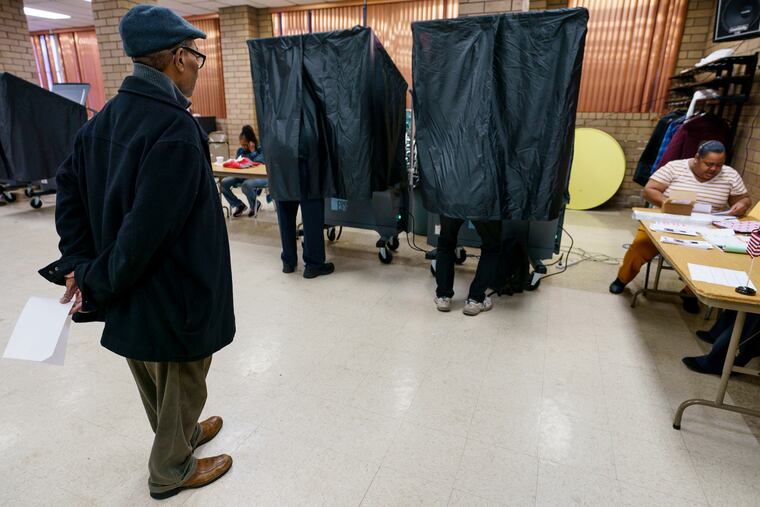How do we fix democracy in Pennsylvania and elsewhere? Local elections. | Opinion
Elections in America are still organized at the county level, where partisan preference, old-boy networks, and sheer amateurism pose dangers.

In recent years, 10 state legislatures have pursued restrictive “voter identification” requirements that target the poor, the elderly, persons of color, and students. Efforts to limit early voting, locate polling places in ways that disadvantage large groups of voters, and remove large numbers of people from voter rolls are also becoming more common in the run-up to the 2020 election. All in all, these moves add up to a concerted attack on our democracy.
So far, Pennsylvania has avoided these restrictions on democracy. A 2012 Republican attempt to pass a sweeping “Voter ID” law was struck down by the courts. It didn’t help that its principal sponsor, state House Majority Leader Mike Turzai, was caught on video saying it would “allow Governor Romney to win the state of Pennsylvania” by disenfranchising Democratic-leaning voters.
But a closer examination of how voting actually works in our state (and the 49 others) raises deeper concerns than any particular law. The biggest problem with our electoral system is its extremely dispersed structure, which remains unchanged from the Constitution’s ratification in 1789. Back then, Article Four reserved power over elections to the states, including setting requirements for and procedures to vote. Today, states still control how elections are managed, leaving the door wide open for a party in power to manipulate the process at the state level.
In fact, in the 50 states themselves, it’s often unclear who’s in charge. Elections in America are still organized and administered at the county level, where partisan preference, old-boy networks, and sheer amateurism pose real dangers.
Of course, there are constitutional amendments dealing with the right to vote. But all are concerned with what states cannot do – like discriminate based on race or sex. None actually guarantees your right to vote.
How do I know this? Since 2004, I’ve co-chaired the “F&M Votes” campaign at Franklin & Marshall College. This is a comprehensive, nonpartisan effort by students, faculty, and staff to register our students and turn them out to vote. We have had a lot of success (in 2012, 67% of our students voted on-campus or by absentee ballot), and one key factor is that the Board of Elections of the County of Lancaster has been consistently cooperative. Month-to-month, week-to-week, they work with us on the shared goal of helping students vote.
Is this true across all of Pennsylvania’s 67 counties? You would hope so. Our Department of State is admirably clear about student voting rights, stating outright that, “If you’re a student in Pennsylvania who has moved to a new county or a new state to attend college, you can still vote. As a college student, you have two choices on where you register to vote. You have the right to register and vote where you live now, whether that is an on-campus or off-campus address. Or, you may choose to register or remain registered and vote at your prior home address.”
But whether the 66 other counties actually follow these guidelines is another matter. And that’s the problem — who monitors and controls local election officials? What is to prevent them from imposing artificial local rules, or, for that matter, simply refusing to process registrations with campus addresses? These issues are particularly important in our state given the outsize role our state plays in deciding who occupies the White House.
Up in New Hampshire, the Republican legislature passed a grossly unconstitutional measure in October to suppress student voting by making possession of an in-state driver’s license a requirement for “residency” and the right to vote. This directly violates the Supreme Court’s 1979 Symm v. United States decision, which guaranteed students’ right to vote where they attend college.
All of us should be concerned about the ability of partisan local or state officials, of either party, to violate or bend the law for their own purposes. Nowhere is this more vital than in guaranteeing free and fair elections. We need constitutional amendments or binding legislation that will affirmatively grant the right to vote to all citizens, 18 and over, wherever they reside, including students. That is what democracy looks like.
Van Gosse is a professor and associate chair of history and the program chair of Africana studies at Franklin & Marshall College. He is a member of the Scholars Strategy Network.